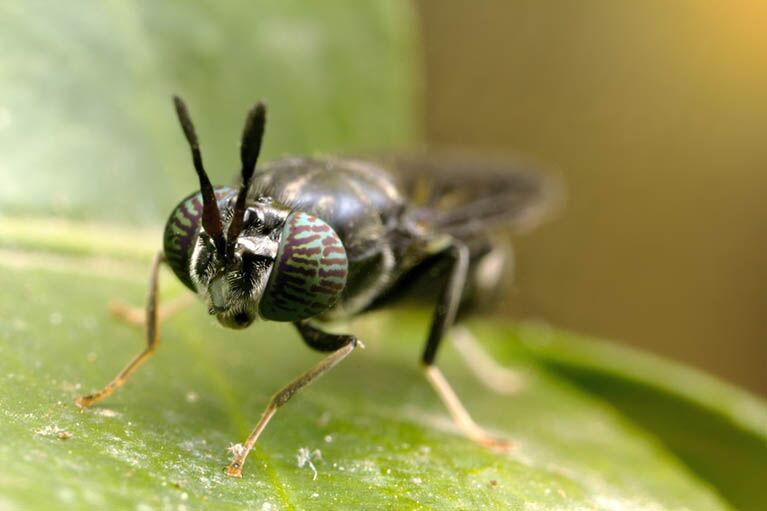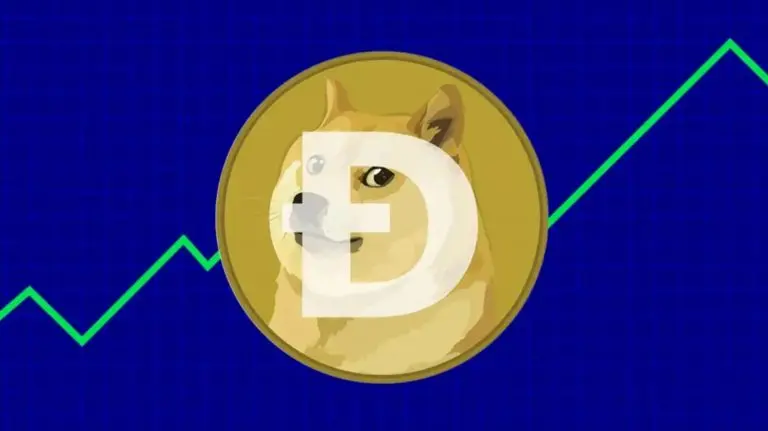
A close-up picture of a black soldier fly.
Insect-based animal feeds and their by-products could represent a $250 million to $1.2 billion opportunity for Nigeria by 2030, as indicated in a study by Manufacturing Africa, a UK government-funded programme supporting the manufacturing sector.
Alternative feed can come from various insect sources, including locusts, crickets, mealworm larvae, and black soldier fly larvae. The black soldier fly has gained popularity as an insect-based protein source due to its lower complexity and cost compared to other species.
The production of insect-based animal feed establishes a circular value chain. It uses by-products from other processes (such a food production) as inputs, thus reducing food waste. Additionally, the by-products of this feed can be used as fertiliser.

Nigeria’s advantages for insect-based animal feed production
According to the study, Nigeria is well-suited for the production of insect-based animal feed for the following reasons:
Large population and workforce. With a population exceeding 200 million and growing at around 3% each year, Nigeria is facing a mounting pressure on its food supply. This increases the need for alternative animal feed sources to alleviate food-feed competition. Additionally, the labour-intensive nature of insect-based feed manufacturing makes it favourable for low-skill, low-cost labour.
Waste availability. Black soldier fly larvae feed on waste generated by restaurants, markets, farmers and food processors. The country has ample supply of organic agricultural and food waste. As per the World Bank, Nigeria generates waste estimated between 0.65-0.95 kg per person per day, leading to about 50 million tonnes of annual waste.
Favourable climate for black soldier fly rearing. Nigeria enjoys climate conditions well-suited for the development of black soldier fly larvae, which thrive in temperatures between 24-30°C. This gives Nigeria a unique advantage over colder regions, like Europe, where heating costs can pose challenges.
High demand for feed The Global Feed Survey 2020 highlighted that Africa requires 43.7 million tonnes of animal feed, with Nigeria accounting for 5-10% of the continent’s demand. In 2021, farmers spent around 70% of their animal production budget on feed, with 70-90% of the protein needed for feed production being imported. Thus, feed costs are subject to foreign exchange fluctuations, driving the demand for cheaper and more stable alternative feed sources.
The insect-based feed value chain
The insect-based feed value chain includes seven key stages, as shown in the below image.

Challenges
Based on conversations with Nigerian manufacturers, six primary challenges have been identified across the value chain:
Limited formal waste collection process. Inefficient waste collection and separation hampers the consistency and accessibility of waste inputs.
Low product awareness. The insect-based animal feed market in Nigeria is in its early stages, and existing producers operate on a small scale. The product is yet to gain mainstream recognition.
Insufficient local R&D on the value chain. Knowledge of the insect-based protein value chain largely stems from individual research by manufacturers, rather than industry-wide studies, hindering widespread access to information.
Uncertainty regarding potential policies or government standards. There are currently no direct government policies affecting insect-based feed, leading to apprehensions about potential future regulations.
Lack of accessible and affordable financing. At present, there are no dedicated funds or loan programmes for manufacturers, making financing challenging to access.
Limited access to stable power. Issues with grid reliability and frequent power outages affect the manufacturing process, which often relies on electric equipment.




